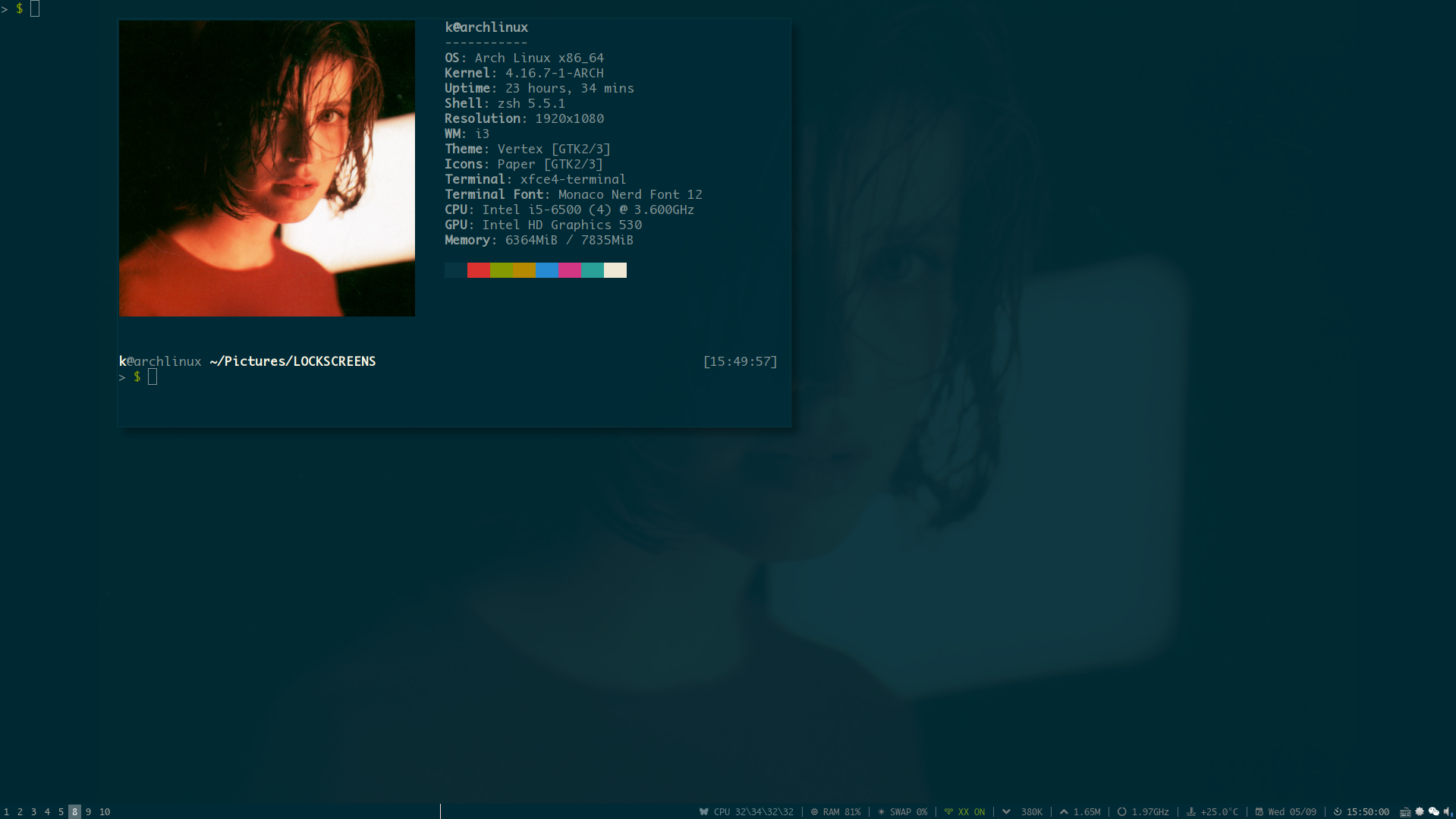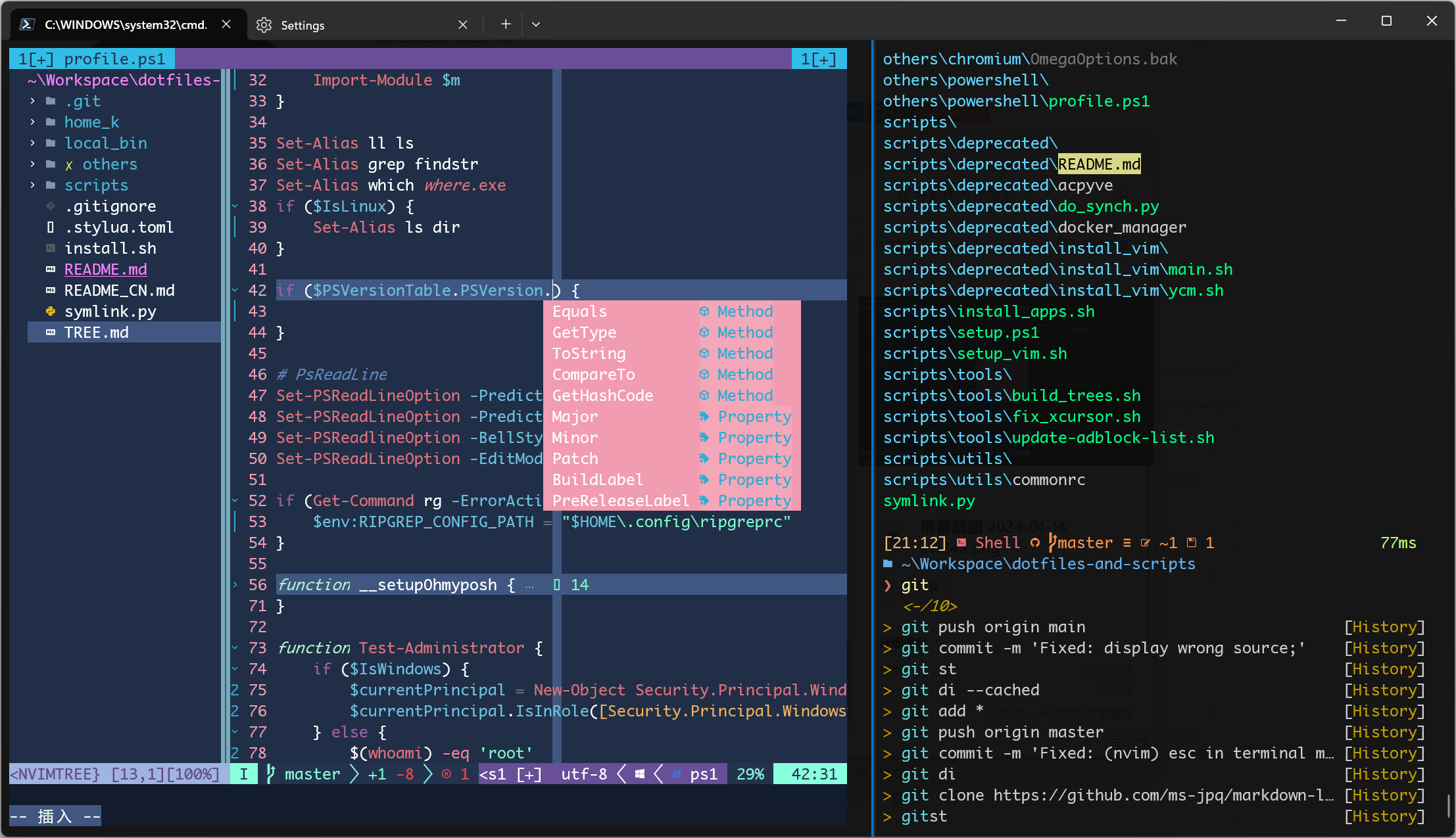The ArchLinux installation scripts has been migrated to this repo and is no longer maintained.
|简体中文|
| 🎨 | Linux | Windows | |
|---|---|---|---|
| Shell | Editor | Vim / Neovim (compatible with vscode-neovim) | |
| Terminal | Alacritty + Tmux + Zsh | WindowsTerminal + pwsh(OMPosh) | |
| Font | Monaco Nerd | ||
| Dict | kd | ||
| Others | fzf / fd / ranger / lf / pistol / rg etc. | ||
| GUI | Desktop | i3wm | - |
| Statusbar | polybar | ||
| Launcher | rofi | ||
| Notice | dunst | ||
| Enhancement | picom | ||
| Input | fcitx5 | ||
| Screenshot | flameshot | ||
Check file tree
Firstly, clone this repo.
To apply everything in form of creating symbolic links for them (there will be prompt and backup before overwriting files):
python symlink.pyscript parameters:
- -h show this help message and exit
- -i, --interactive Let me determine each file
- -d, --delete remove all symlink files
- --nogui only for terminal apps
- --vimonly only for vim related apps
Here are two sets of full-featured configuration for Vim and Neovim (compatible with vscode-neovim). Spent years optimizing them. There are many plugin differences, but the basic behaviors and keybindings are pretty much the same. Mainly for everyday Python/Golang/Java/Javascript/Typescript development, as well as whipping up VimL/Lua/Bash scripts.
Simply run:
bash scripts/setup_vim.shThis script will take care of everything included:
- ensure Vim/Neovim installed
- created symlinks for configuraion files
- setup plugin and the manager
- install related apps (lsp, linters, fixers, fuzzy finders, etc.)
Or if you only need the configuration files, run symlink.py with vimonly specified:
python symlink.py --vimonlyLaunch Vim/Neovim and the plugin setup will start automatically.
Syncing Vim configurations directory under root might run into issues. I prefer not to create unique configuration for root user. FYI, I will create symlinks for .vimrc and .vim unser /root, sharing the same files with normal user.
These are the apps I use for pretty much everything – work, development, and everyday life.
This script supports both Arch Linux-based and Debian/Ubuntu-based distributions.
bash scripts/install_apps.sh./dotfiles-and-scripts/scripts/setup.ps1the description about some scripts that are no longer maintained can be found here
Function:
- launch, restart, stop, check status, check log
- update bt-tracker(from ngosang/trackerslist) periodically. Or via
updatesubcommand - backup old log files
- other trivials
Better combine with cron.
More details can be found in comments of the script.
Mainly for Pi-hole use. Alternatively you can add domain lists directly to Pi-hole's adlists, but Pi-hole updates often get stuck (possibly due to the performance of older Raspberry Pi models). So, I decided to create a manual handling script instead.
I've mixed together domain lists from a bunch of popular repos, got rid of duplicates, and set it to run weekly in crontab. After that, just add local file link to Pi-hole.
You can fork this repo and symlink your configuration files with symlink.py.



